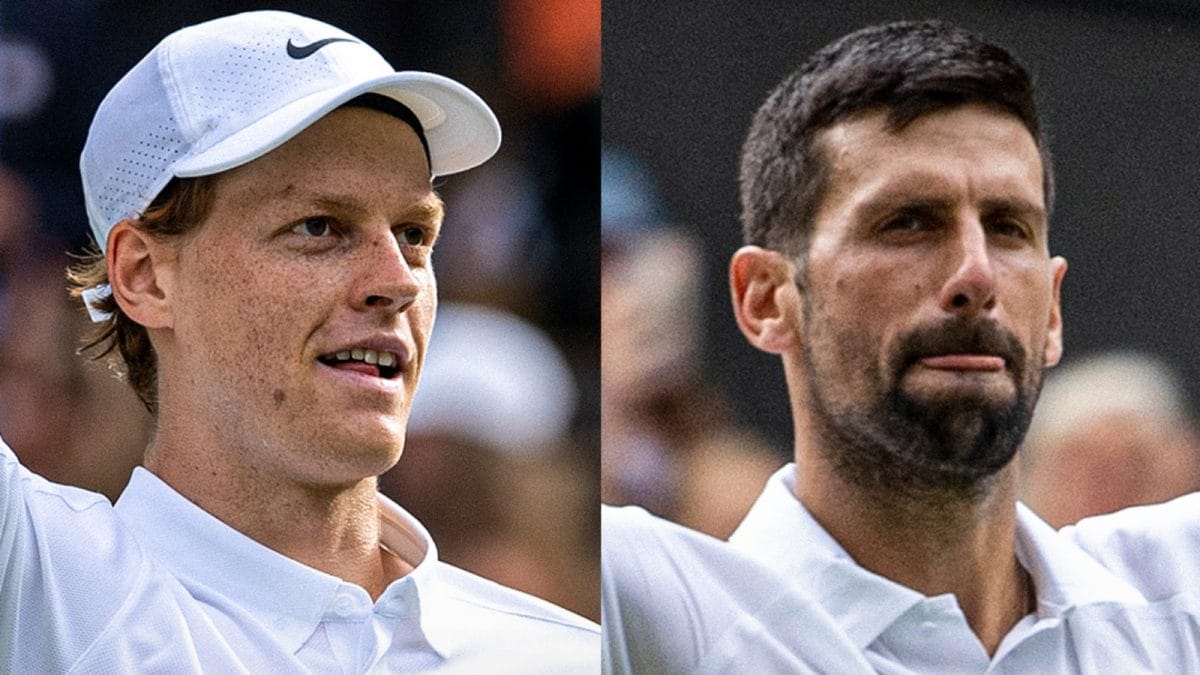ARTICLE AD BOX
Last Updated:July 17, 2025, 16:18 IST
Football's governing bodies may eliminate penalty rebounds and expand VAR powers for the 2026 World Cup, marking a historic first in the sport's 134-year history.

Xabi Alonso's iconic penalty rebound goal in the 2005 UEFA Champions League final (AFP)
Football’s governing bodies are considering two major rule changes ahead of the 2026 FIFA World Cup—one of which would mark a historic first in the sport’s 134-year history.
According to a report from The Sun, the International Football Association Board (IFAB) is discussing a radical proposal that would eliminate rebound opportunities from saved or missed penalties.
Under the potential new rule, if a penalty is saved or strikes the post or crossbar and returns to play, the attacking team would not be allowed to follow up. Instead, the defending side would be awarded a goal kick. This would mirror the format used in penalty shootouts, where the outcome is determined by a single attempt.
The proposal is being considered for implementation in time for the 2026 World Cup, set to be hosted across the United States, Canada, and Mexico.
If approved, it would mark the first time in the sport’s history that follow-up chances from open-play penalties are disallowed—ending moments like Xabi Alonso’s famous rebound goal in the 2005 UEFA Champions League final.
VAR Could See Expanded Powers
In addition to the penalty rule change, IFAB is also exploring a significant expansion to the Video Assistant Referee (VAR) system.
Under the new guidelines, VAR officials could be granted authority to intervene in incidents involving second yellow cards and even corner kick decisions.
This proposed extension of VAR’s scope is aimed at improving consistency and fairness, particularly in high-stakes matches where marginal calls can have massive consequences.
Why Rebounds Are Under Scrutiny
The reasoning behind removing rebound opportunities is rooted in a desire to eliminate perceived unfair advantages for attacking teams.
Critics argue that minor infractions—such as soft contact or borderline handballs in the box—are often punished too severely when they lead to penalties that can result in multiple scoring chances.
The current rules already heavily restrict goalkeepers, who must keep at least one foot on the goal line until the ball is struck. Defenders are also under increasing pressure, while attackers can capitalize on rebounds despite the original foul offering no clear goalscoring opportunity.
Additionally, rebound scenarios frequently cause confusion, particularly when players encroach into the penalty area before the kick is taken. These situations have led to numerous VAR reviews and controversial retakes, something IFAB hopes to reduce with a simplified rule.

After training in the field of broadcast media, Siddarth, as a sub-editor for News18 Sports, currently dabbles in putting together stories, from across a plethora of sports, onto a digital canvas. His long-term...Read More
After training in the field of broadcast media, Siddarth, as a sub-editor for News18 Sports, currently dabbles in putting together stories, from across a plethora of sports, onto a digital canvas. His long-term...
Read More
News18 Sports brings you the latest updates, live commentary, and highlights from cricket, football, tennis, badmintion, wwe and more. Catch breaking news, live scores, and in-depth coverage. Also Download the News18 App to stay updated!
view comments- Location :
- First Published:
News sports » football No More Rebound Goals From Penalties? 134-Year Rule To Be Changed By IFAB: Report
Disclaimer: Comments reflect users’ views, not News18’s. Please keep discussions respectful and constructive. Abusive, defamatory, or illegal comments will be removed. News18 may disable any comment at its discretion. By posting, you agree to our Terms of Use and Privacy Policy.



.png)
.png)
.png)
















 2 days ago
6
2 days ago
6









 English (US) ·
English (US) ·